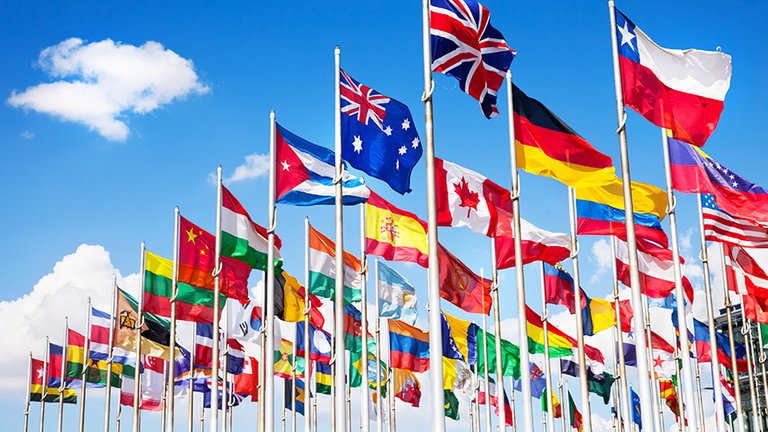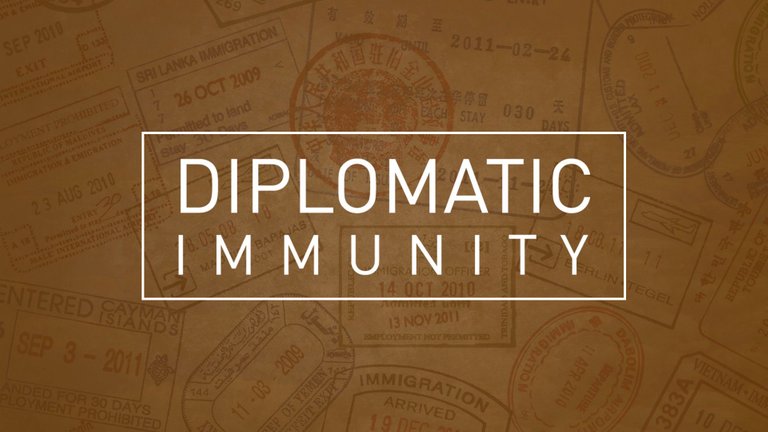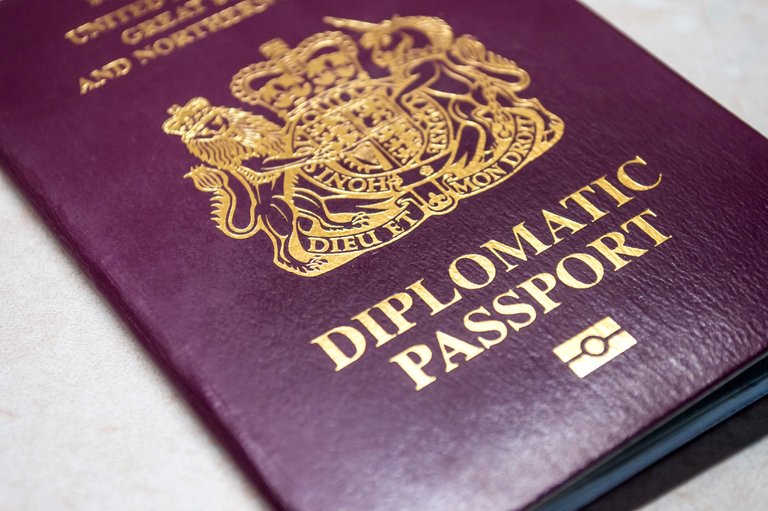DEFINITION OF DIPLOMACY
The 20th Century Dictionary defines diplomacy as "an act of Negotiations especially in Relations Between states. It is the tact in Management of persons concerned in any affair".
The Oxford Dictionary defines Diplomacy as "the management of international Relations by negotiation". The method by which these relations are adjusted and manage is an act of diplomacy.
Also Defining diplomacy, Sir Ernest Santo wrote that "diplomacy is an application of intelligence and tact to the conduct of official relations between the government of independent state. In other words, diplomacy framework on the basis of which harmonious inter-governmental relationship rest.
While some other diplomat see it as an act, others see it as a craft and noble profession. A British writer Harold Nicolson remarked that "diplomacy is an act of essential element in any reasonable relations between man and man and between nations and nations. he added that essence of diplomacy is common sense and charity applied to international relations
TYPES OF DIPLOMACY
- Bi-lateral Diplomacy (this involves only two states)
- Multi-lateral Diplomacy (this involves more than two states)
- Economic Diplomacy
- Military Diplomacy
- Energy/Ecology Diplomacy
FUNCTIONS OF DIPLOMATS
A diplomat has often be referred to as the ears and eyes of his government in other countries, a diplomat carries out various functions in a country of his primary assignment. i shall therefore be discussing functions of diplomacy that is listed below:
REPRESENTATION
Representation is the primary and fundamental function of diplomats, as a matter of fact, a diplomat is an accredited representative of his country in a foreign country. Which in a foreign country the diplomat represents his own home country. Thus, in the eyes of many citizens of a country in which he is doing his own primary assignment, he is regarded as the country which he represents, therefore has utterance and Speeches, personal impression and official duties are regarded to be those of the president of his country and for this reason there is constant communication between the diplomat and the foreign affairs of his home state.NEGOTIATING
Diplomats are by intents and purpose negotiators. as a matter of fact, one cannot separate the act of negotiation from the duties of diplomats, this is because a diplomat negotiates on behalf of his own country, as well as signing various treaties and agreement between his country and the host country which the need arises. A diplomat while negotiating must understand the national temperament and character as well as access the recent trends in public opinion so as to influence not only officials attitude but also public choice. While negotiating, the diplomat must try as much as possible to persuade in explaining national interest as well as international goals of his country to which he is accredited.
The Diplomat is critically involved in the drafting of a wide variety of bi-lateral and multi-lateral agreement embodied in treaties, conventions, protocol as well as other documents of Political Economic and social in nature.
- REPORTING
One important function of a diplomat is that he gathers informations of the country of his primary assignment and he reports same through the ministry of foreign affairs, the report of diplomats in the field of foreign assignment are tangible materials to be used in their home country while formulating foreign policy between their country and host country.
Diplomats are suppose to be very good reporters as this would enable him/her give his host country, some of the major subject of his reports are:
- Legislative programs.
- Public opinion.
- Market condition.
- Trade.
- Finance.
- Production.
- Agriculture.
- Forestry.
- Fishing.
- Mining.
- Natural resources.
- Fleets.
- Legislation.
- Tariffs etc.
Diplomats are expected to be very objective while reporting Issues of happening in their host country
PROTECTION OF INTEREST
Diplomats are charged with the responsibility to protect the interest of their home country while in their host country. The duty of a diplomat is therefore to pursue the national interest of his home country and this interest which forms the foreign policy of home country must not be compromisedENSURING THE WELFARE OF THE CITIZENS OF HOME COUNTRY IN HOST COUNTRIES
Diplomats are suppose to look after the interest of citizens of home country in host countries like:
- Protecting their business interest.
- Giving them legal assistance.
- Giving them ideas of business interest to venture into.
- Generally looking after them.
QUALITIES OF A DIPLOMAT
- They must be skilled and trained in the act of diplomacy.
- They must have capacity to speak foreign languages.
- A diplomat must be knowledgeable.
- Diplomats must have good communication skill (when he speaks, people listen and get influenced).
- A diplomat must have the international policy (handsome and presentable).
- A diplomat must be patient and persuasive
- A diplomat must easily adapt to his new environment.
DIPLOMATIC IMMUNITY
Diplomatic immunity refers to those rights and privileges that diplomats enjoy in their states of primary assignment. Before now, diplomats enjoys certain treatment in the airport in that their handbags and luggages are not searched in the airport. they were accorded full respect to that of a Head of State (president of a country). If a diplomat represents his country, he is given full respect because treating his otherwise is disrespecting his own country.
IMMUNITY DIPLOMATS ENJOY
- Diplomats are not repatriated back to their country
- Diplomats are not tried in court in the state of their primary assignment when they commit a crime, they are however brought back home to be tried by their municipal court.
- They cannot be arrested. however international crime such as terrorism, trafficking, etc are been judged by the International Criminal Court of Justice.
- Children of Diplomats are given full scholarship by their home country in their host country
- They have the privilege to be assigned domestic staff including medical personnel.
APPOINTMENT OF DIPLOMATS
Most states do not take general pattern in the appointment of their diplomats. This is to say that every state has their rules and procedures in the appointment of diplomats, However, there are acceptable international procedure that must be followed before a diplomat can be appointed. these procedures are:
The nomination of a diplomat must be publicly announced only after his country of primary assignment has accepted him or her. And thus, given their approval for sort a diplomat to enter their country.
The sending state must first transmit the Curriculum Virtue (CV) of the supposed diplomat to receiving state would do a background check which is usually done through their foreign missions in the secondary state.
When approval is finally recieved, the diplomat is then invited to his state capital where he would meet with the head of his state and officials of the foreign ministry and the diplomat would be briefed on various areas which include:
- A long term relationship between his country and the host state of primary assignment
- The Culture
- The Politics
- The Religion
And it is important to note that thus training would take days to finish.
Before the diplomat takes off, he would be given a letter of credence undoubtedly, the letter of credence is indeed a diplomats formal commission which is signed by the head of state to which the diplomat is accredited
Upon arrival to the country of primary assignment, he would immediately gets in touch with the ministry of foreign affairs and request an audience with the head of state who he is supposed to personally submit the letter of credence.
A ceremony is usually fixed to receive the diplomat and the ceremony is usually characterized by speech making, exchange of pleasantries and contacts where the new diplomat would briefly be informed of the way of life of the people of his primary assignment after which he would be hosted to a lunch or dinner.
Thanks for reading my post
Please do Resteem, Upvote, Comment, and Like my Post.





Good one
I love this article
Thanks for the insight